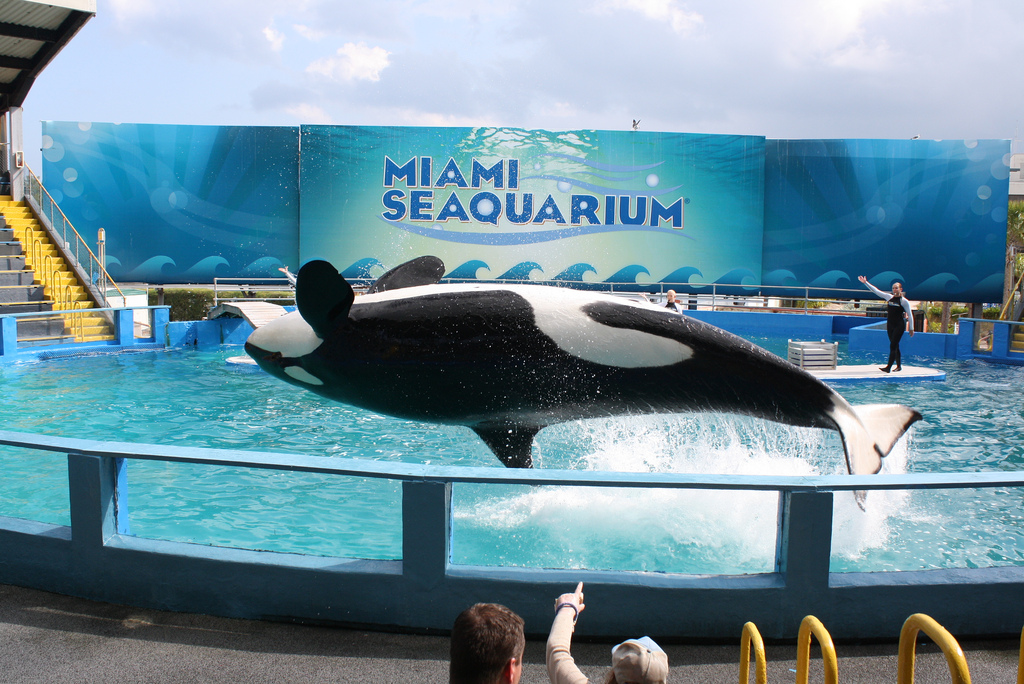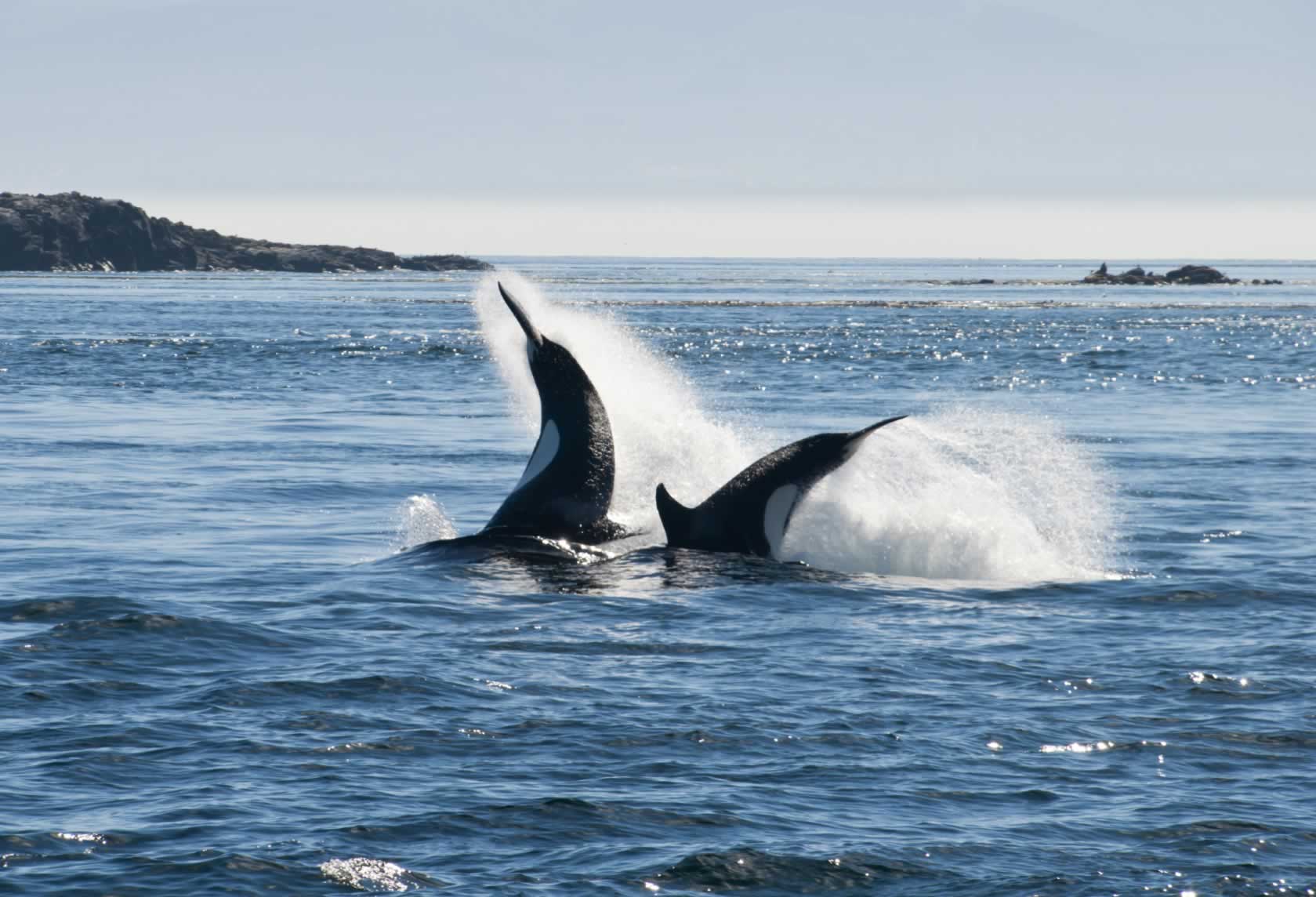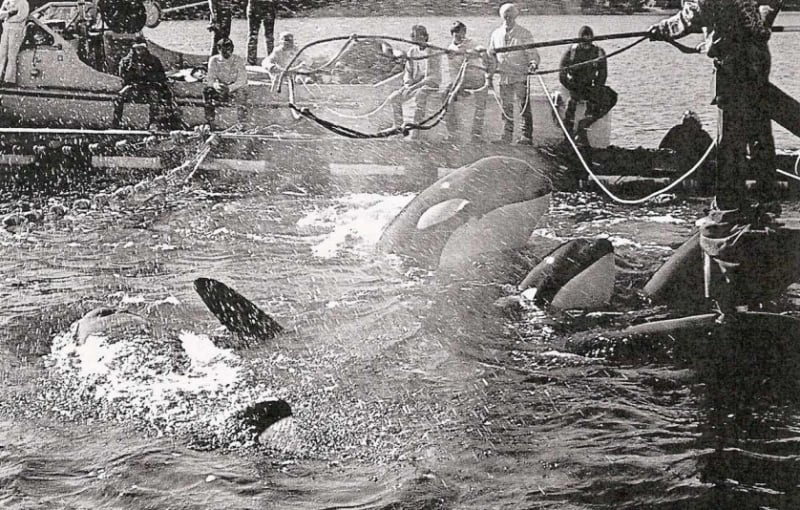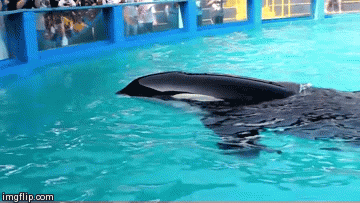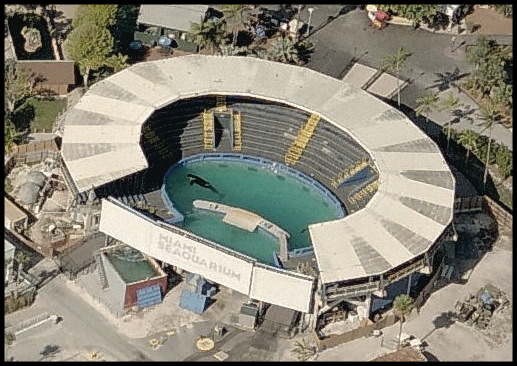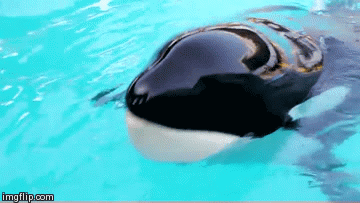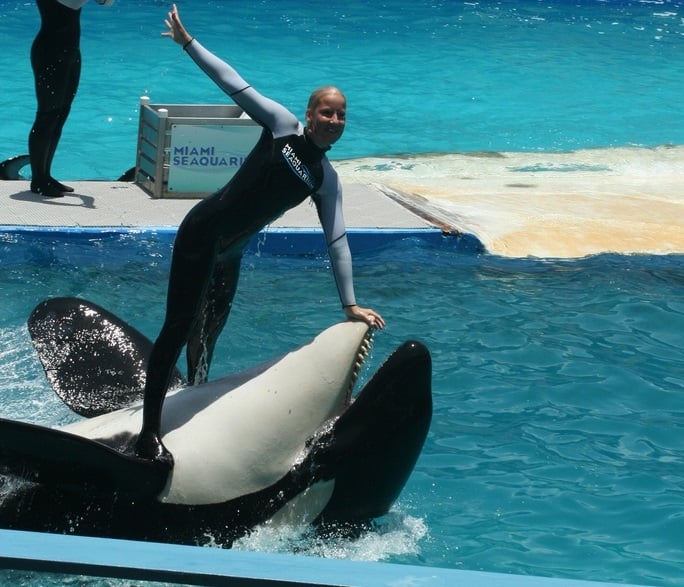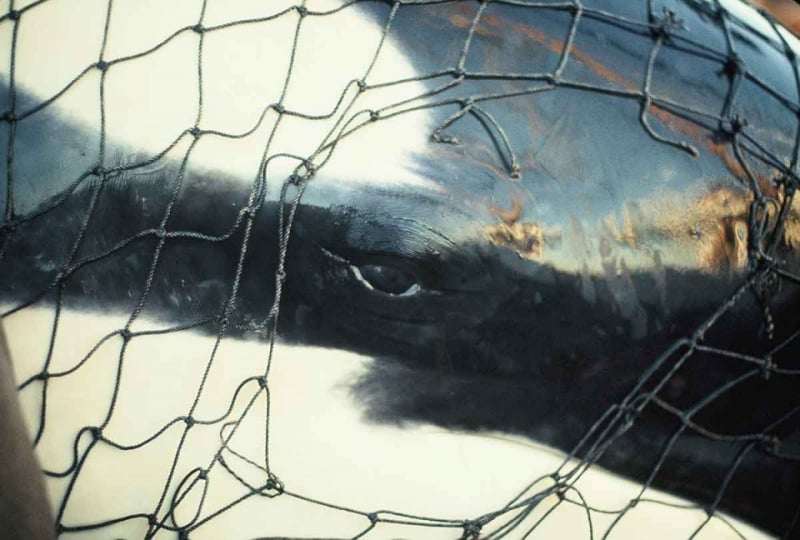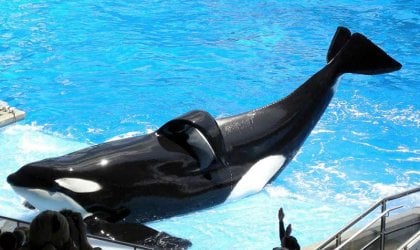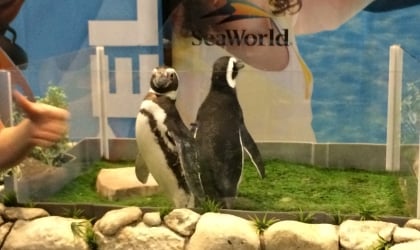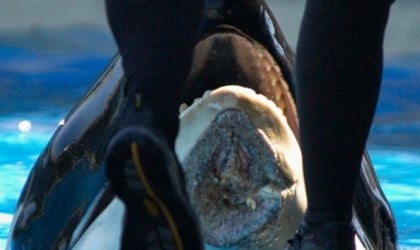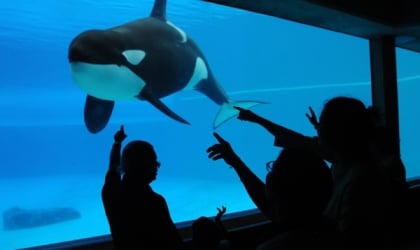Lolita was torn away from her family and natural habitat decades ago, along with several other orcas in Puget Sound who were later sold to marine parks. Forty-five years later, she’s still stuck in a tank at the Miami Seaquarium, without another orca. Here are seven reasons why Lolita (whose given name is Sk’aliCh’elh-tenaut) is the loneliest, saddest orca in the world:
1. She basically lives alone …
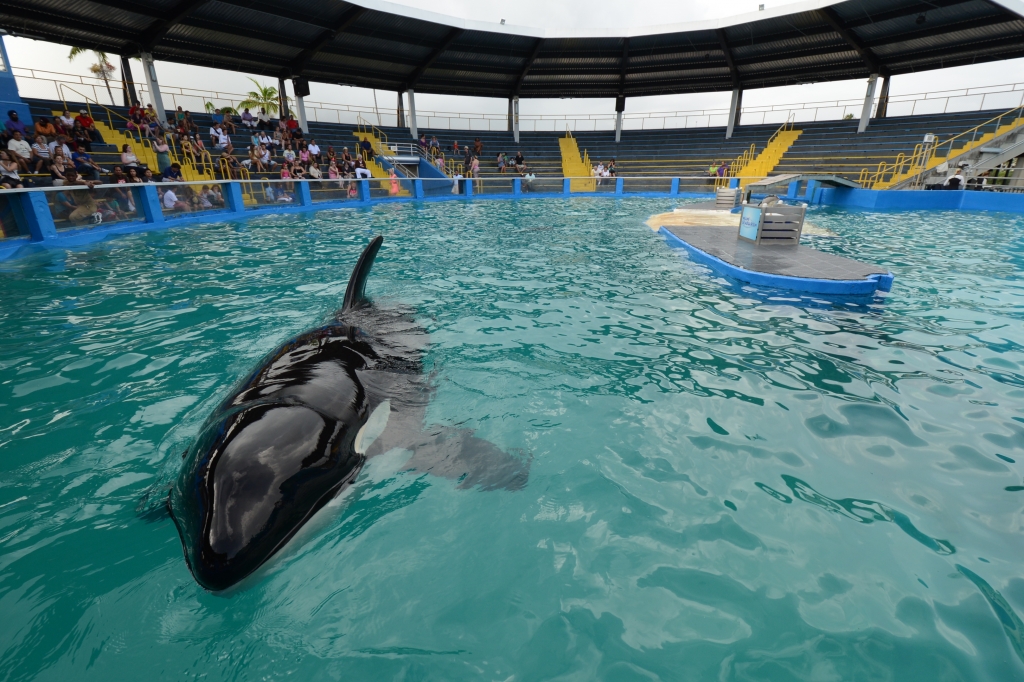
Orcas are highly social, and in the wild, Lolita would still be swimming with her pod in her native waters, where it’s believed that her mother still thrives. However, at the Miami Seaquarium, she lives without any other orcas.
2. … and has no one to talk to.
Lolita hasn’t seen another orca since 1980, when her tankmate, Hugo, apparently committed suicide by repeatedly ramming his head into the side of the tank. She has not lived with another orca since.
3. She misses her family …
NBC’s Dateline visited her in 1996—26 years after she was captured—and played sounds from Lolita’s pod, to which she clearly responded.
4. … especially her mom.
At approximately 4 years old, Lolita was violently torn away from her terrified mother. She hasn’t seen her mom since, even though it’s believed her mother is still alive. That was 45 years ago.
5. She can’t even exercise to distract herself from her prison.
Lolita’s tank is the smallest in the U.S. It is a pathetic 20 feet deep—the length of Lolita’s body—at its deepest point and is only 60 feet by 80 feet in diameter with a large concrete platform in the center. In the wild, orcas swim up to 100 miles a day and regularly dive to nearly 1,000 feet into the depths of the ocean. That’s a huge difference.
6. She has no relief from the sun.
Lolita’s sensitive skin is left exposed to the scorching Florida sun because her tank, which is treated with chemicals so that the water is clear for guests’ viewing, is too shallow for her to dive deep enough to seek refuge. A former Miami Seaquarium caretaker reported seeing Lolita’s skin cracked and bleeding from severe sunburns.
7. She is constantly frustrated.
Held in a small barren tank with virtually no opportunity to engage in any natural behavior, Lolita exhibits abnormal repetitive behavior, such as bobbing her head and floating listlessly.
She needs our help!
What’s Being Done
Lolita’s wild pod was granted protection under the Endangered Species Act (ESA), and after PETA and others petitioned the government, those protections were finally extended to Lolita, too, in May 2015.
What You Can Do
- Avoid the Miami Seaquarium, and refuse to support any marine-animal park.
- Speak out in Lolita’s behalf: Sign a letter calling for her release.
- Share her story with friends and family and on social media.
With your help, one day soon Lolita might have a chance to spend the rest of her life with her family in her native waters, where she’ll finally be able to live a more natural life.
We see you, Lolita. We’re trying.

